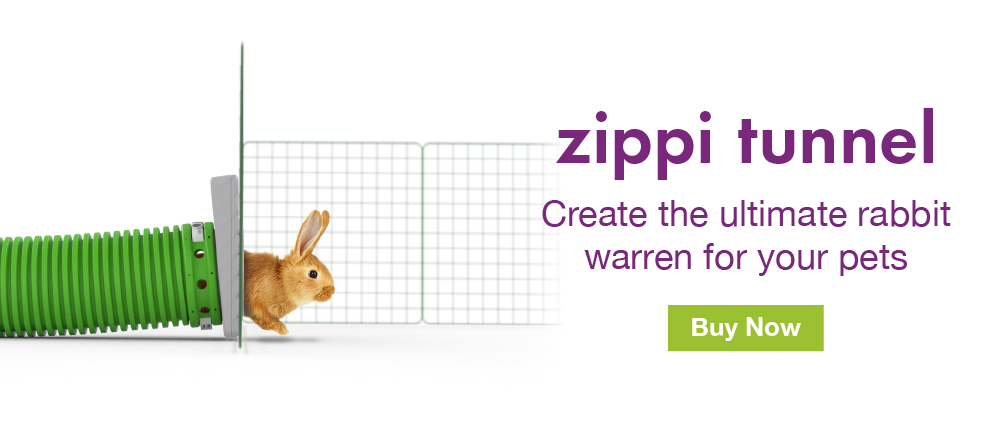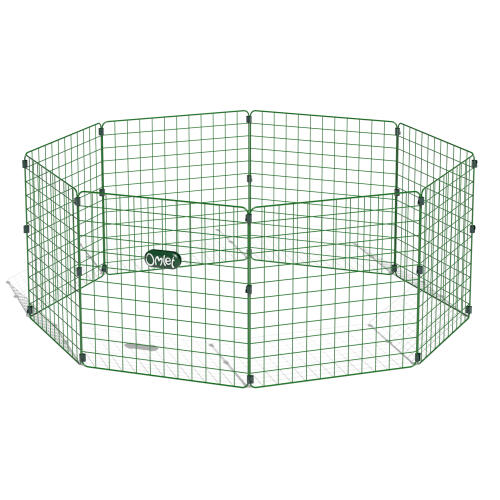If you’re going to allow your pets free-reign in your home, then some rabbit-proofing preparations are in order. Whether you’re buying house rabbits or bringing your garden-dwelling pets into the warm for a time, you will need to protect both your belongings and your pets from unwanted interactions. Below is a list of some areas and objects that you might want to pay special attention to.

Homes need protecting from rabbits, and rabbits need protecting from homes!
- Wires - a big hazard for the free-range pet. See our How to Rabbit Proof Wires section for more information on how to safeguard these hazards.
- Curtains - it’s best to use short curtains in free-range rabbit rooms. If your curtains have any cords attached, you may want to install a hook high up so that they cannot be reached by your pets.
- Bathrooms, dryer rooms, garages and kitchens - we recommend that you install puppy gates to prevent your pets accessing these areas. There are lots of substances and appliances in these areas that could be dangerous.
- Guarding furniture legs - these are prime candidates for chewing. Some owners have had success with training their pets out of this behaviour, whilst others have resorted to putting different materials over the actual leg, ones that they don’t mind being nibbled on. Plastic guards are also available from pet shops and online, but as with wire protectors, make sure that these are made of a rabbit-friendly material.
- Furniture undersides - one of the simplest ways to stop your rabbits chewing these objects is to stop them reaching them in the first place. As with kitchens and bathrooms, puppy gates allow you to cordon off areas of your home, whilst stable wooden structures can be used to prevent them from getting behind or under furniture. Just be sure that nothing can fall or be pushed over, as this is dangerous for your pet.
- House plants - lots of these are not safe for rabbits to consume. It’s best to remove them from free-range rabbit rooms.
- Cupboards and drawers - many rabbits have become stuck in cupboards. Not only is it easy to lose your rabbit in the dozens of cupboards around your house, but they can also gain access to your possessions. Keeping cupboards and doors closed, and perhaps investing in child-locks are two potential solutions.
- Tables - anything on tables that are low enough for your rabbit to reach will be classified as fair game to your pet. As such, it’s best to keep books, ashtrays, and food on higher surfaces.
- Ventilation - be sure to put grills up to prevent access to these systems, as rabbits have been known to hop into them.
- Windows - you’d be surprised at how high rabbits can jump. It’s best to keep the windows closed, or to install firm mesh over windows of rabbit rooms.
- Heaters, fires and fans - it’s very risky to put these on in rooms in which your rabbits are free range. They are dangerous for curious noses and long ears.
How To Discourage Rabbits From Chewing
Providing toys for stimulation can help distract rabbits from other objects in your home. Similarly, providing chews is a great way to limit the extent to which your rabbit will gnaw on objects within your home is to provide them an alternative.
Rabbit chews and gnaws are specially-designed objects that enable your pets to safely wear down their teeth on a small wooden block, one that has not been treated with anything that can harm your pet. We sell a variety of these at our rabbit shop.
Keeping Your Rabbits Safe Indoors
Young children and pets should be prevented from accessing indoor rabbit free-range areas. While young kids may mean well, they can accidentally harm small animals, or handle them too roughly and receive a bite in return. Pets such as dogs, cats, snakes, ferrets and rats also pose a threat to these little herbivores.

It's not usually this cosy between bunnies and dogs!
Even if your other pets are very friendly, they are a lot stronger than your rabbits and have predatory instincts that can kick in unexpectedly. Rabbits can be hurt unintentionally during play as well as intentionally through chasing.







Comments
There are no comments just yet